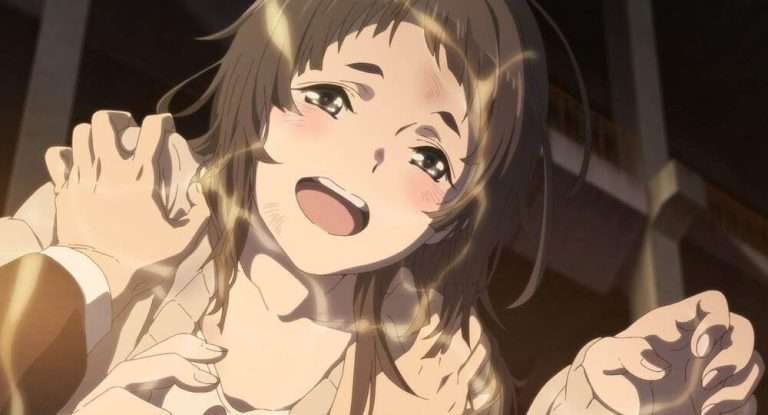The Abstract
This study provides a unique approach to the subjectivity of the comedy, Chaplin’s approach to the satire of Hitler, the production process of The Great Dictator (1940), and specific criticisms of dictatorial ideals.
The reason why this article had written is the desire to unveil the grueling yet inspiring process of making the film that tells the world the concept of peace through someone who tried to despise world peace.
The intention of this writing is to reveal the plans that Chaplin aimed for while making The Great Dictator are brought to light through the dusty pages.
Introduction
Is it possible to make jokes/comedy about any subject? Some people might think otherwise, and those affected by the situation at the center of the prank may find the joke offensive. When a phenomenon is laughed at, the moral aspect of the content that is unintentionally laughed at is evaluated. But who can decide whether a joke is ethical or not? If the scope of humor is subjective, does comedy have boundaries? For example, is it possible to write jokes about alcoholism, rape, child abuse, or one of the political ideologies that have claimed unlimited lives throughout history: Fascism?
Related to The Great Dictator: M (1931) is still terrifying after 90 years
From the perspective of famous comedian Ricky Gervais, the value of any joke; depends not on the content of the comedy, but on the way it is directed. When the content is used in the right way, society can be informed and awareness can be raised about the joke without being harsh. You see, the limit of comedy; depends on the intention of the author. Years after the release of the Great Dictator, Charles Chaplin clarifies the controversial issue in his autobiography.
“Had I known the actual horrors of the German concentration camps, I could not have made The Great Dictator; I could not have made fun of the homicidal insanity of the Nazis.”
In both this sentence and the rest of the autobiography, he talks about things he can and cannot do over and over again. However, as Chaplin stated, the existence of comedy is hidden in the intention. That’s why he ends his sentence with the phrase “I couldn’t make fun of…” rather than “I wouldn’t make fun of…”. The movie in question The Great Dictator pleads to humanity by satirizing Adolf Hitler. While the second world war continues and governments collapse, it serves as an announcement for the unity of the people. The fact that the comedy is based on fascism does not make the film itself bad; on the contrary, it broadens the horizon of the message that the production wants to convey. For this reason; it is not a Hitler parody, but a critique of the dictatorship. The film itself brings a socio-cultural critique to the political problem in the middle. Of course, the cruel, ruthless creatures that govern societies are of no use to humanity; However, the real problem is not the existence of these people, but the habits of societies that cause such people to be formed.
In the movie, Similar in many respects, but at the same time, two completely different poles are introduced. Chaplin and Hitler gather on common grounds in terms of mustache, height, date of birth, being born in poverty and achieving relative success in their field, and many other factors. The same goes for the movie as well. The Dictator Hynkel and the Jewish Barber have the same mustache, and length appearance. After all, Chaplin gives life to both characters. On the other hand, the ghetto for the palace, and the poverty for the abundance are revealed throughout the film. Chaplin responds to the formation of such different yet similar identities:
“He’s a madman, I’m a comedian. But it could also be the other way around.”
This notion is clarified in the final scene of the movie (mentioned in the ‘Final Monologue’ section). The Great Dictator, Although it follows the era behind in terms of form; With its content, it brought a new breath not only to the cinema but also to art. It is one of the rare films that has managed to describe a situation in a satirized way that could lead to ethical dilemmas, at the time of the event. It is a rare production that has managed to be the predecessor of films such as Jojo Rabbit (2019), Der Undertag (2004), and Dr. Strangelove (1964) over the years. His influence not only on American cinema but also on Italy with Benigni cannot be ignored. In Life is Beautiful, where the victims of the Holocaust were at the center of the movie, Benigni managed to get rid of moral discourses just like Chaplin did with The Great Dictator.
Although comedy and satirization are dominant in the script, there are heavy scenes that are shown at a pure level due to the nature of the genocide. For instance, in the second act, we see a Jew killed in the middle of the street by the order of Hynkel; the one who was killed was independent of the characters we follow.
Although Hynkel’s manner of speaking, behavior, and communication with other characters are satirized; Chaplin does not hesitate to remind the audience of the consequences of the character’s orders. The audience, who laughs through the film, might be stunned by the tonal changes at certain points in the movie. After multiple viewings, it’s not an editing error or a roughness in the script structure; It is realized that it is a conscious decision. For this reason, the film is not a kind of production that can only be considered in the comedy genre.
In the movie, Hitler was not only a caricatured clown; His interaction with Napolini was also psychoanalyzed. Chaplin does not see Hitler as an evil-eyed sinner, while giving life to the character, he also empathizes with his desires, and passions, and most importantly; focuses on his fears. In short, he tries to understand Hitler through Hynkel. Months after the movie’s release, an American informant on duty in Germany reports that Hitler obtained a copy of the movie and had a chance to watch it in a closed screening. Learning this, Chaplin could not learn about Hitler’s reaction to the film, although he was curious. After the years, Hitler said about Chaplin: “He’s not an actor, he’s a politician”, and Chaplin replied, “It would be hard to find a bigger fraudster than Hitler.” Although The Great Dictator did not receive the demand it deserves due to the period it was published, its special screenings began to be held at festivals twenty-thirty years later and it managed to reach the countries where it was banned at the time.
The Great Dictator
In the first half of 1938, when Germany was beginning to spread to the world, Chaplin started to write the movie; He worked on the script for about a year and a half. Going back to old pages and revising his drafts day after day, Charles attributes the film’s endless process of change to the illimitable turmoil of the era. In August 1939, holding the final draft in his hands, Chaplin made a statement to the press; announcing that his new movie The Dictator’ (the name at the time) will be released next year. For a month after his announcement, he received reductive feedback from many colleagues to critics.
I started getting alarming messages from writers around the world.
If the movie is to be released, it will not only be banned in Germany; Nor would it be shown in countries that were not actively involved in the war at that time. England was one of those countries, which made an announcement during the shooting of the film. It was stated that the film will not be shown in England in order to prevent possible friction between them and Germany. The irony is that when the movie was in post-production, England was already involved in the war; It had begun to support all propaganda against Hitler. For this reason, it became one of the first countries to show The Great Dictator on the big screen all over the world by returning from its statement. Filming began in September 1939, when the Nazis had occupied most of Poland. Although Charles Chaplin received death threats from anonymous places by the people around him; He insisted on making the movie. Deciding to be the executive producer before the shooting started, he announced to everyone once again that his voice could not be suppressed, especially to Hitler, his mustachesake, who was infecting France like a virus.
So how did Chaplin construct the portrait of Hitler in the story he insisted on telling? Was Adenoid Hynkel just a caricatured copy of Adolf Hitler? The toothbrush mustache model was recognized worldwide not by Hitler, but by the master of silent cinema, Charlie Chaplin. The mustache, which the Nazi soldiers had shortened in order to use gas masks optimally, had become a replica of Chaplin.
As stated in the INTRODUCTION part, Hitler and Chaplin were born four days apart; their weight, height, and appearance are not much different either. While creating Hynkel’s personality, Chaplin embraced this reality rather than escaping it and gave life to Hynkel himself. Although Barber and Hynkel are played by the same actor; Chaplin did his best to make sure that people didn’t look at the characters the same way. It is noticed throughout the movie that every nuance is meticulously taken care of, touching this point from the body language of the characters to the opening credits. He also managed to create such distinct characters that people will laugh with the barber while laughing at the Hynkel himself.
In the course of the film, Hynkel serves as a symbol emphasizing that dictatorship is nothing more than an infantile desire. We witness that he concealed his insecurities by manipulating his words; he was someone who gets what he wants through deception, obsession, and fraud. After he started to share his scenes with the character Napolini, the desire for superiority that Chaplin tries to display becomes more evident, for example, the two dictators get into childish quarrels over their positions when the photo is taken. The same is true for the scene where they try to stay on top of each other while shaving and trying to gain the upper hand. Although many references and metaphors are attached to the character, from the worthlessness of his words in the typewriter scene to his climbing on the curtain; all these factors are summarized in a single scene. Hynkel, who spins the balloon world on his finger; Although he directs the world as he wishes with his waist, little finger, and head, the balloon bursts when he tries to grasp it with both hands. Remembering the rule “SHOW, DON’T TELL!”, Chaplin sums up the corrupt desires of dictators with this scene. To conquer the world, to command it all, and to dominate with one & supreme race is nothing but absurdity. When the plans of the dictators begin to collapse within themselves, their world ends with their plans. Aside from Stalin, Mussolini, and many other dictators; Hitler is one of the prime examples of this situation.
Hinder the Silence & Final Monologue
Although it didn’t take long for the sound cinema movement invented in the early 1920s to invade Hollywood, it took twenty years to see examples of it in Chaplin’s filmography. The fact that the movie Modern Times, which was released in 1936, did not contain voice dialogue, surprised the audience. Although Buster Keaton, Harold Lloyd, and many other artists tried to keep up with this trend until then; Chaplin cautiously chose to wait. Contrary to popular belief, not every movie he made until The Great Dictator was silent, and although the theme music in movies like Modern Times and City Lights are still memorable, they lacked a feature The Great Dictator had: sound dialogue.
Also Read: How “Birth of Nation” Deepened The Hate In the Society
Until then, Chaplin was showing the characters’ words with title cards, but with this film, he made dialogue a critical part of the story for the first time. From Hynkel’s speech pattern to the jokes based on the sound effect of the typewriter, the sound is heavily involved in the film, and for his first sound film, Chaplin used this form of expression in a very creative and bold way.
There is a familiar saying: “Expect the unexpected.” A screenwriter, director, actor, producer; If he has been stuck in one genre all his life, he should not think that he can’t do another, he should believe that he can do more. Why can’t the master of comedy do drama if he believes he can do it himself? Why shouldn’t the daring to the system of someone known for his silence become the most poignant and truthful talk in the history of cinema? The Great Dictator’s final monologue deserves a separate article on its own; Even the presence of monologue inspires the oppressed to stand up and dare to clenched their fists. The free cry echoing in the furnaces filled with cracking bones comes from neither the voice of Hynkel nor the Jewish Barber; We witness Charles Spencer Chaplin sharing his concern about the future of mankind with all his transparency to his audience.
Since Hitler’s domination of Europe reached its peak during the filming of the movie; Rather than a barber’s statement who wanted to reach his loved one, Chaplin concluded the film with a creator’s plea for peace and tranquility in the world. The dilemma he experiences between writing this ending or not is also expressed in his dialogue with the character Schultz in the movie.
Schultz: “You must speak!”
Barber: “I can’t.”
Schultz: “You must. It’s our only hope.”
This talk about how conflict corrupts human nature sheds light on the necessity of stopping the war and how much the industrial revolution has blunted humanity. If you remember, he satirically expressed the fact that machines were ahead of humanity in the movie Modern Times as well.
“More than machinery, we need humanity. More than cleverness, we need kindness and gentleness.”
Destroying the prestige created by Modern Times, The Great Dictator caused Chaplin to be exiled from America due to his communist views years later and almost all of his films, especially The Gold Rush, were banned in Germany. On the other hand, Chaplin agreed to repeat his monologue on the radio so that the speech could reach a wider audience. Although many people find his decision to use this kind of ending overwhelming and contrary to the whole film; The section that thinks it is motivating and uplifting is also to a degree that cannot be underestimated.
The fact that Chaplin’s speech, which criticizes the inhumanity of dictators and despots, matches today’s political (&economic) events is chilling. When social media and the internet are replaced by the radio and new devices; The monologue itself does not lose any meaning under today’s conditions. Chaplin’s alteration of the final scene may suggest that his choice was beyond the scope of the film. Written with the intention of criticizing the dictator, the film contains direct messages from certain aspects; It re-emphasizes the power of cinema.
Just as Hitler remains on his throne by spitting on microphones lined up in front of him, Chaplin is trying to wake people up by adding his own interpretation to the same effort. This is the similarity between Hitler and Chaplin, Hynkel and Barber: Anger and Despair. Two different emotions, independent of each other, but completely objective. The anger of the Barber, who witnessed how the system trampled the Jews, and the despair of Hynkel, mistaken for an ordinary Jew. They owe their identity to the purest emotions that they feel. Therefore, the speech is not only to American or German society; made to the people of the world. It emphasizes the importance of everyone coming together to overcome the problem. Because Chaplin also knows that; The only thing that will end the world war is world peace.

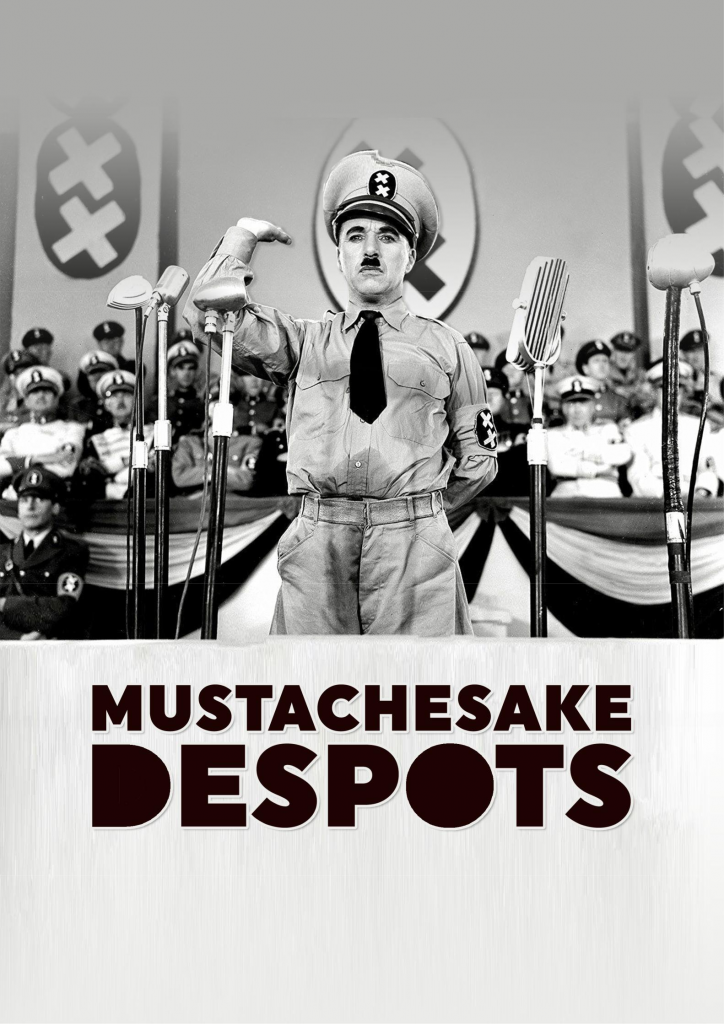
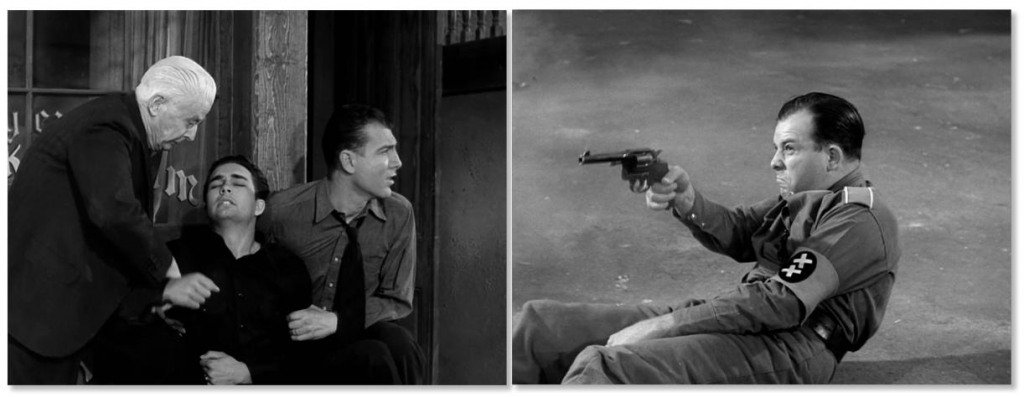
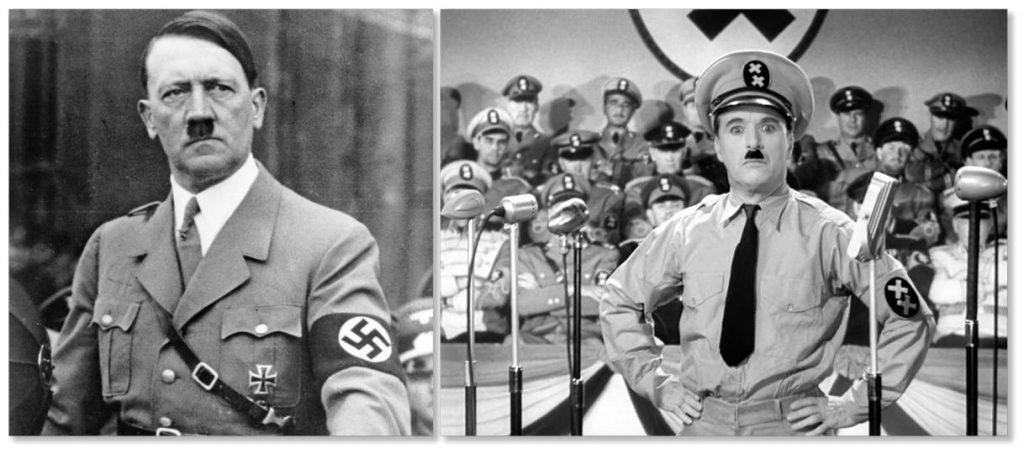


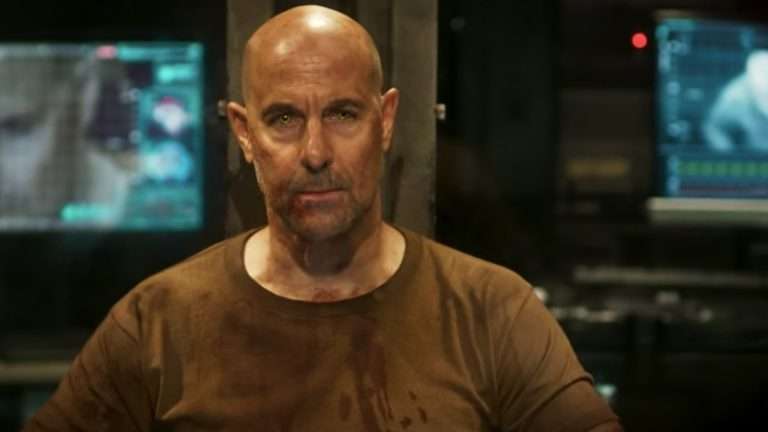
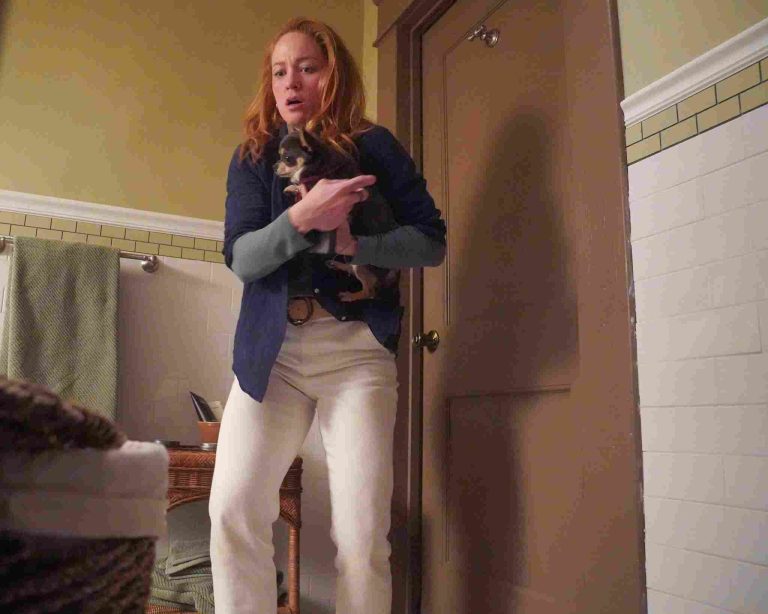

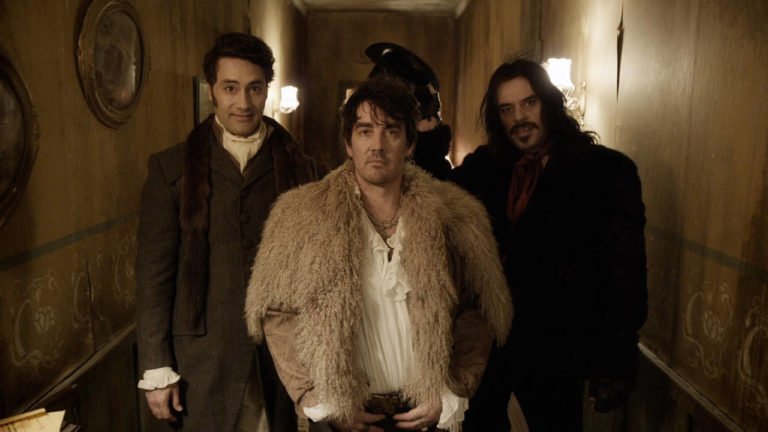
![1987: When the Day Comes [2018]: Fantasia Film Festival Review](https://79468c92.delivery.rocketcdn.me/wp-content/uploads/2018/07/1987_-When-the-Day-Comes-2-768x432.jpg)
